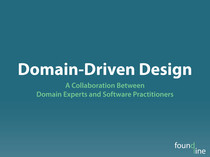Lars Hasselblad Torres, director of the Vermont Office of the Creative Economy, retweeted a link today to an article about the The Real Reason Creative Workers Are Good for the Economy. From the article:
At bottom, [the findings from a new study by Neil Lee and Andrés Rodríguez-Pose of the London School of Economics] suggest the need to shift from firm-based policies to more talent-based approaches — something I have long argued for. It’s time to stop the old “industrial policy” approach of subsidizing private firms and industries and focus instead on developing the broader creativity of workers. As their findings make clear, the better, more effective path to generating the kinds of innovations that underpin job creation and economic growth comes from creative workers in cities.
The other day I started a list of community tech events in the greater Burlington, Vermont area. One reason I started this list is to help quantify the economic development impact of the local tech community. By community I mean people—not companies (a few of the events I cataloged are run by companies, but these are all community-focused events). So far I have documented 17 regular tech meetups and 9 major tech events that happen throughout the year in the greater Burlington area. I’ve documented 18 local community tech events scheduled for this September and October alone.
From an economic development policy perspective, these events are largely under the radar (with a few notable exceptions). However, I believe that these events have a huge unrecognized economic development impact. Individual creative workers attend these events, regardless of where they work (in the creative industry or not). From the article:
According to the study, creative workers were a “significant driver of product innovations overall” and a “key driver of learnt process innovations.” In other words, workers in creative occupations across all industries were essential in spreading innovative processes and products around the economy, as they introduced learned innovations to other firms. The key to innovation is creative workers, both within and outside of creative industries.
It is at these community tech events that knowledge and insights into processes, tools, and innovations are shared and diffused throughout the creative economy.




